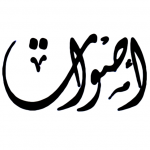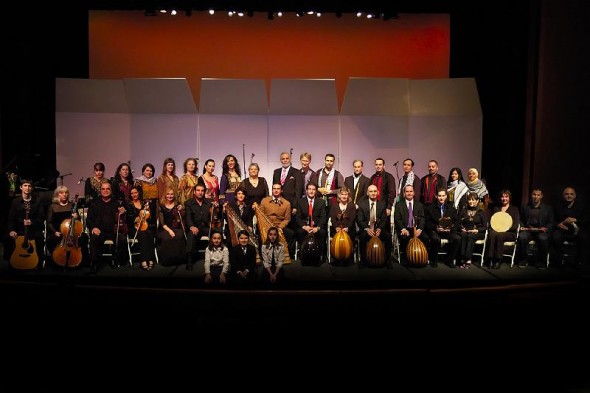
ASWAT
ASWAT is the Bay Area’s Premier Arab Music Ensemble. True to Zawaya’s commitment to pluralism and inclusion, Aswat is a multi-ethnic and multi-racial music ensemble that reaches out to the diverse Bay Area community with folkloric, classical, and contemporary Arabic music. Aswat’s doors remain open to all who want to participate in the exciting, enriching exchange between Arab Americans and other communities through the universal language of music.
ASWAT welcomes anyone who is interested or even curious about Arab music to learn more by contacting ASWAT at: join@zawaya.org or nabila@zawaya.org.
AWAT also offers music lessons to anyone interested in learning oud, kanun, tabla, and violin, contact ASWAT at: zawaya.admin@gmail.com for details.
Sary Dowidar Guest Music Director for 2013 Nabila Mango Founding Director

Aswat Ensemble
About the Music and the Instruments The Aswat Ensemble performs contemporary, classical, and folk songs from the Arab world. The ensemble plays traditional musical instruments such as the qanun (trapezoidal zither), ‘oud (lute), nay (reed flute), Kaman (violin), riqq/daff (tambourine), tar and darbukkah/tablah (goblet drum). GLOSSARY Debke – linedancing in Jordan, Lebanon, Palestine and Syria. Darbukkah – goblet shape hand drum Maqam (maqamat) – mode; an Arab system of pitch or ganization that allows for the construction of melodies and improvisation (taqseem) within a scale. Muwashshah – a “postclassical” singing form not rigidly governed by the qasidah, originated in the Middle East, and integrated into the music of AlAndalus in the 10th Century Qad Halabi – a folkloric song based on the melody of an other regional folk song, especially Turkish or unknown older Arabic songs. Qadim – old (unknown composer) Qasidah – a poem set to music consisting of 1025 or more lines of poetry Riqq – fish skin tambourine Taqsim – nonmetric improvisation played in a maqam ‘Oud – Arabic style fretless lute